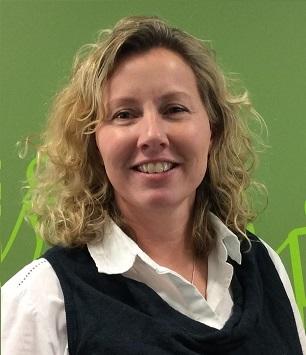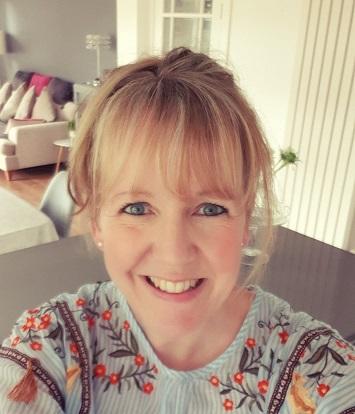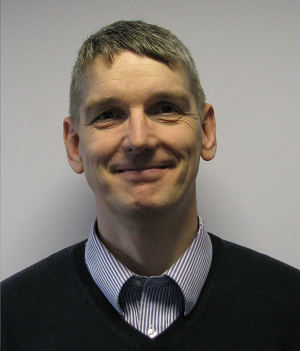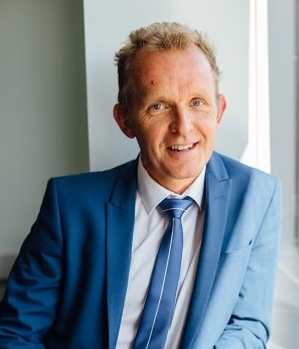Talking to your doctor
- If something doesn’t look or feel quite right, or if you think you might have cancer, don’t ignore it – speak to your doctor.
- Your doctor will want to hear about any unusual changes you’re experiencing. You won’t be wasting their time.
- Spotting cancer early saves lives.
How do I register with a doctor?
Register with a doctor to get access to appointments and to make sure you get invitations to cancer screening.
Find a doctor and register in:
This page has information about talking to your doctor. This includes tips on making an appointment, how to get the most out of the appointment and what to do afterwards.
The appointment could be for yourself or for someone you support or care for.
It’s important to listen to your body and talk to your doctor if something doesn’t look or feel quite right, or if you think you might have cancer. Whether it’s a change that’s new, unusual for you, or something that won’t go away, take charge and get it checked out. In most cases it won’t be cancer, but if it is, spotting it early when treatment is more likely to be successful can make a real difference.
Doctors don’t always need to see you face to face. Your consultation will likely start on the telephone and your doctor will then advise if they need to see you in person. They may ask you to send a photo or may refer you for further tests if needed. If you’re asked to attend in person, or book a follow up test, it’s important to go.

There’s no need to worry about wasting your GP’s time. If one of my patients has noticed something unusual, it’s better to talk and make a plan together, than them worry about it at home.
Dr Katie Elliott, GP Clinical Lead, Northern England Strategic Clinical Alliance for Cancer
Making an appointment at the GP surgery
Getting an appointment
You can make a GP appointment:
-
By calling the surgery where you are registered.
-
Through the website at some surgeries.
-
Via the NHS England app or the NHS Wales app for some surgeries in England and Wales.
As well as doctors, GP surgeries can offer you appointments with other health professionals. These include nurses, clinical pharmacists and physiotherapists. They can all help in different ways, depending on your symptoms and situation. Your GP receptionists can help make sure you get the right appointment with the most suitable health professional for you. And in some cases, they might even be able to get you an earlier appointment. So, although you don’t have to tell the receptionist any details, sharing even a little information can be helpful.
If you’ve tried to make an appointment and not been able to, keep trying. Although you may need to try more than once to get an appointment, please do stick with it. Our UK-wide research found that almost 9 in 10 people who got an appointment did so within three tries of contacting their GP practice.
Here are some things you can try when booking a GP appointment:
-
Try calling back at different times of the day.
-
Ask the receptionist for the best time to call to get an appointment.
-
Some GP practices offer more than one way of booking. These may include phoning, e-consultations/online forms, and walk-in clinics. If you’ve already tried one method of getting in touch, find out what other options your GP practice has to offer on their website.
Many GP surgeries have other options to help patients find appointments that work best for them. For example, telephone appointments, longer opening hours on weekdays, and even weekend clinics. Ask your GP receptionist or find out more on your GP practice website.
Getting support for your appointment
You can ask the receptionist to explain anything you’re unsure about before your appointment. This includes any questions about how a video or telephone appointment will work, or if you’d prefer an in-person appointment.
If you need any extra help in your appointment or if you have access needs, tell the GP practice when you book your appointment. These could be things like a translator or a chaperone (another member of staff in the room with you and the doctor).
If you’d like a friend or family member to go with you for support, let the receptionist know.
What do I say to my doctor during an appointment?
Your doctor wants to hear from you if something doesn’t look or feel quite right, you won’t be wasting their time.
We asked doctors what helps them and their patients get the most out of an appointment. There are some tips on how to prepare for your appointment below. We know that talking to your doctor isn’t always easy, but they are there to listen and want to help you.

As GPs, if there’s something bothering our patients, we want to hear about it.
Dr Debbie Harvey, GP Cancer Lead, North West Coast Strategic Clinical Alliance (Cheshire & Merseyside)
- Be honest. Tell your doctor about anything that’s not normal for you, even if it doesn’t seem that important or you think it might be a bit embarrassing. Your doctor is a professional and is used to helping with lots of different types of symptoms.
- Be thorough. Mention all your symptoms, even if you think they might not be serious or important. And don’t put symptoms down to ‘just getting older’ or assume it’s part of another health condition. It’s not your job to know what’s wrong, and if something’s bothering you, then your doctor will want to hear about it. Try to give as much detail as you can, especially if you’re speaking to your doctor online or by phone and they can’t see you.
- Be prepared. Have a think about how to describe the changes you’ve noticed. Think about roughly how long you’ve had them for and if anything makes them better or worse. Writing down these things and any questions you want to ask can help. It can also be useful to have a list of medications that you are taking, including any over-the-counter or herbal remedies. Have a pen and paper ready, so you can take notes during your appointment and write down any next steps.
Your doctor shouldn’t do any tests or examinations without asking you first. And they should explain what they are doing and why. And if you don’t understand anything your doctor says, ask them to explain it again or in a different way.

Some of my patients come in with all the things they want to tell me written down. That can be really useful to get a better picture of what's going on with their health and helps us prioritise which concerns to deal with first.
Dr Chris Tasker, GP Cancer Lead, North of England Cancer Alliance
After your appointment
- Go for tests. If your doctor has referred you for further tests, it’s important to go. Change the appointment if you can’t make the time you’ve been given. You can learn more about different tests or scans you may be referred for if your doctor thinks your symptoms might be caused by cancer.
- Take any medicine as prescribed. Your doctor will tell you if medication would help you, when and how you should take it and for how long. Ask them about any possible side-effects or if there’s something you’re not sure about.
- Follow up. Your doctor might ask you to make another appointment if your symptoms don’t go away after a certain length of time. And it’s very important you do this, even if the doctor hasn’t asked you to, or you’ve had tests come back as normal. If your symptoms continue, get worse, or you notice any other changes that aren’t normal for you, make another appointment. You and your doctor can work together to understand what’s happening.

I always want to see my patients again if their problem or symptom doesn't go away, if it changes or comes back again following a course of treatment. This is really important, because as GPs we want to work with our patients to find the best treatments and way forward.
Dr Neil Smith, GP, Oakenhurst Medical Practice, Blackburn
Who else can help?
As well as at the GP surgery, there are other people who can give you health advice:
- A pharmacist
- Your dentist, if you’ve noticed something unusual in your mouth or on your tongue
- Your optician, if you’ve noticed a problem with your eyes
- The CRUK Nurse Helpline (call free on 0808 800 4040)
- Call 111 in England, Scotland and Wales (if you need medical help and it’s not an emergency or if you are not registered with a GP surgery).
- In Northern Ireland, you can call your local Health and Social Care Trust’s ‘Phone First’ service. They can give advice, and if needed, will direct you to the most appropriate health service for you. Find your local Trust’s ‘Phone First’ contact number.
How can I talk to a doctor if I’m away from my local practice or have no fixed address?
If you need to see a doctor when you’re away from the practice where you’re registered, you can contact a local practice or call 111 (England, Wales and Scotland) for help. You may need to register with a GP practice as a temporary patient.
If you have no fixed address, you’re entitled to register with a GP practice and don’t have to provide ID. You can use a temporary address or the address of the surgery.


